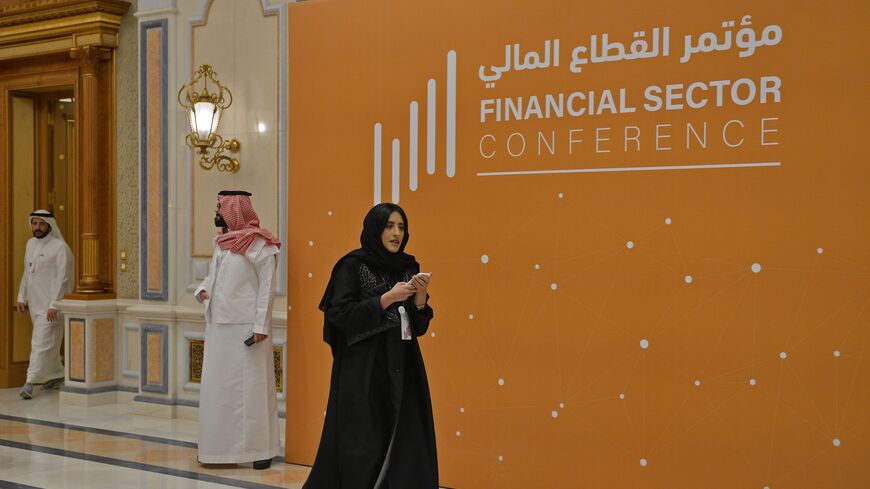The Saudi Central Bank (SAMA), which also acts as the kingdom’s national banking regulator, recently appointed Mohsen AlZahrani to lead its virtual assets and central bank digital currency program. This hire potentially indicates a change in the country’s approach to cryptocurrencies, which regulators there have tended to treat with suspicion.
In 2018, SAMA warned against trading in virtual currencies because of their “negative consequences and [the] high risks on the traders as they are out of government supervision.” The central bank emphasized that cryptocurrencies, including bitcoin, “are not approved as official currencies in the kingdom and no parties or individuals are licensed for such practices by regulators in the kingdom.” The regulators further noted that Saudi citizens should not pursue the “illusion” of crypto-related “get-rich schemes.”
According to Mirza Mahmood ul Hasan, managing director of Fiduciam Global, a Riyadh-based consultancy firm that advises on digital transformation, the regulators have previously demonstrated an overly cautious attitude toward crypto. “Anything related to public investing or the flow of money, they will approach very, very conservatively,” Hasan told Al-Monitor. “They feel that they are the ones that will protect the public, and the feeling is often that the “common man” in Saudi may not be able to exercise a lot of judgment on his own.”
SAMA’s positioning on cryptocurrencies may also have been influenced by religious considerations. Digital assets have been controversial in the Muslim world. Because of the high degrees of volatility involved in crypto markets, some Islamic scholars have argued that trading crypto is effectively the same as gambling and is therefore haram. In 2017, prominent Saudi cleric Assim al-Hakeem declared that cryptos are prohibited under Islamic law because of their “ambiguity.” Last year, crypto was deemed haram in the world’s biggest Islamic country, Indonesia.
Given all of this, what might have caused SAMA to consider a change in approach?
There is firstly the reality on the ground. Despite there being no legal means of buying crypto in Saudi Arabia, there has nonetheless been a proliferation in the number of citizens trading digital assets in the kingdom. According to research published in May by KuCoin, a global crypto exchange, around 3 million Saudis “have become crypto investors who either currently own cryptocurrencies or have traded over the past six months.” This accounts for 14% of the adult population aged between 18 and 60. KuCoin also claimed that a further 17% of adults are “crypto-curious and are likely to invest in cryptocurrencies over the coming six months.”
Hasan believes this may have prompted a recognition from the regulators that “it’s very difficult to stay away from this.”
“You cannot control this financial evolution. It will evolve everywhere in the world,” he argued. This is perhaps especially true in Saudi Arabia, where 70% of the population is under 30 and where attitudes on a wide range of subjects are liberalizing. The job of AlZahrani at SAMA is likely to involve considering regulations that will protect consumers — and offer the authorities at least some control over crypto markets — while accepting that innovation in this space will continue to take place.
Furthermore, there has long been interest from both public and private enterprises in Saudi Arabia in the potential of blockchain. This is the technology that underpins crypto, a public and transparent database that records transactions between different entities. While there is a strong association between blockchain and cryptocurrencies, the technology can also be used in non-crypto contexts.
Indeed, this type of use has increased significantly in the kingdom. For example, blockchain solutions have helped halal companies trace the source of ingredients and ensure the relevant standards are met. Major corporations like Aramco have also invested in developing the technology. Aramco has adopted blockchain as a way “to integrate thousands of sensors at oil fields and refineries to check performance.”
Because of the increasing number of use-cases, Hasan says that “there is a massive amount of interest in blockchain,” and this in turn is driving wider interest in crypto. He told Al-Monitor that SAMA may believe that “you have to use a cryptocurrency” in order to take full advantage of "fintech and blockchain solutions.”
Some observers have also noted that the kingdom’s shift may be influenced by the success of the neighboring United Arab Emirates. The UAE has offered a favorable regulatory environment for digital assets companies and granted licenses for many of the global exchanges to operate in the emirates. This has seen both Dubai and Abu Dhabi emerge as global crypto hubs.
Abdulla Al Ameri, a crypto specialist who founded a blockchain-focused venture capital fund in the UAE, believes that Saudi Arabia has been inspired by his country’s success. He said that the “UAE is showing Saudi [Arabia] how to bring investment in,” and this has prompted SAMA to consider “regulating the crypto markets.”
While some have described Saudi Arabia and the UAE as "rival allies" in the trade and investment sphere, Ameri believes that when it comes to crypto, “There are a lot of synergies and a lot of things happening between Saudi [Arabia] and the UAE that complement each other.” He pointed to the fact that the UAE and Saudi Arabian central banks have agreed to launch a joint cross-border cryptocurrency as evidence that the two countries are “brothers,” at least in this area.
Hasan suspects the motivations may be rather different, however. He said Saudi Arabia's “unofficial goal” is “to surpass the UAE in almost everything.” He argued that this is true “even with the tourism that [the government] has been banking on — if you look at what’s happening in NEOM and the Red Sea, the agenda is very, very clear.” He was hopeful that this rivalry with the UAE “is what is going to bring about changes.”
Although Saudi Arabia is by far the biggest economy in the Middle East, it is unlikely to displace the UAE as the region’s crypto hub anytime soon. As Ameri noted, “The UAE is much more advanced and is the first to enter the market,” and has already attracted global crypto exchanges to establish headquarters in the country. Hasan also argued that despite the apparent change in approach from the kingdom, “It will always take a fair amount of time to actually translate into any shifts in the environment.”








